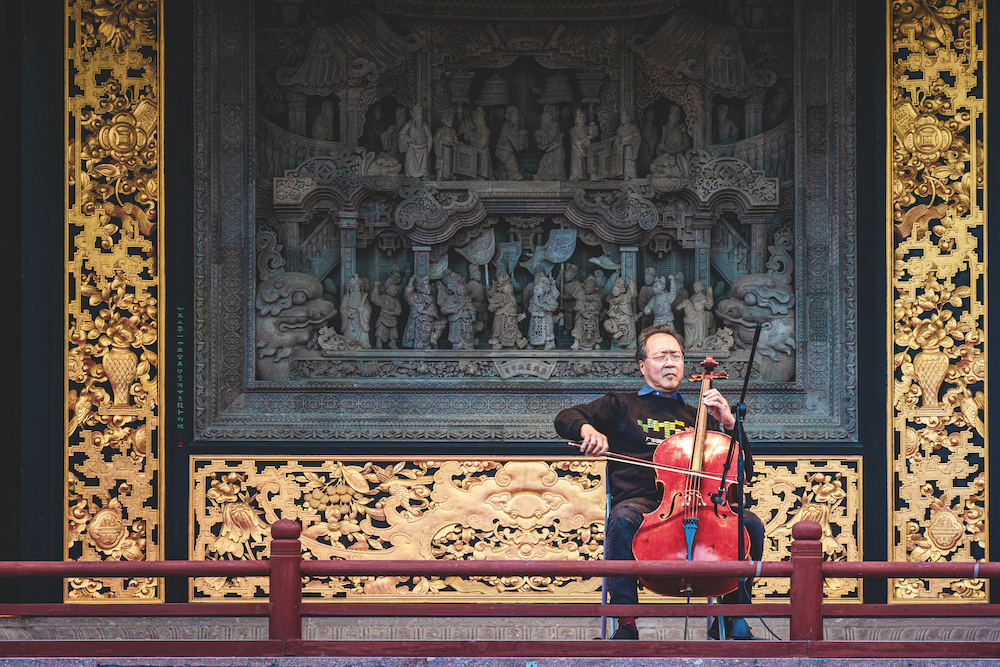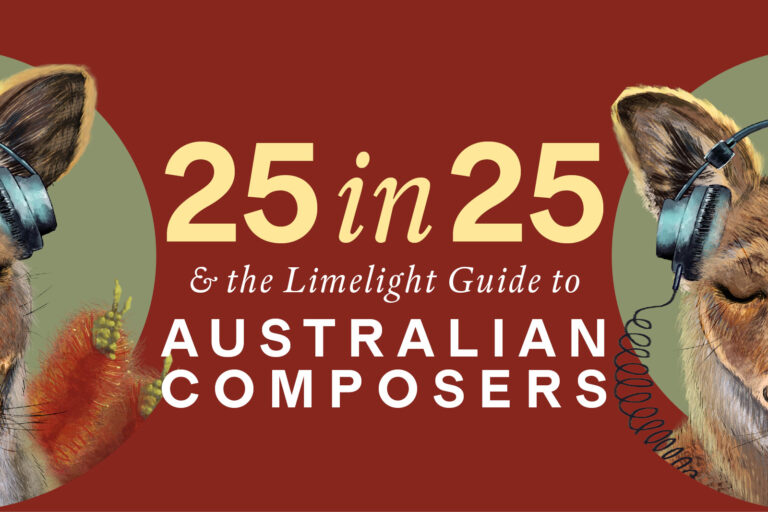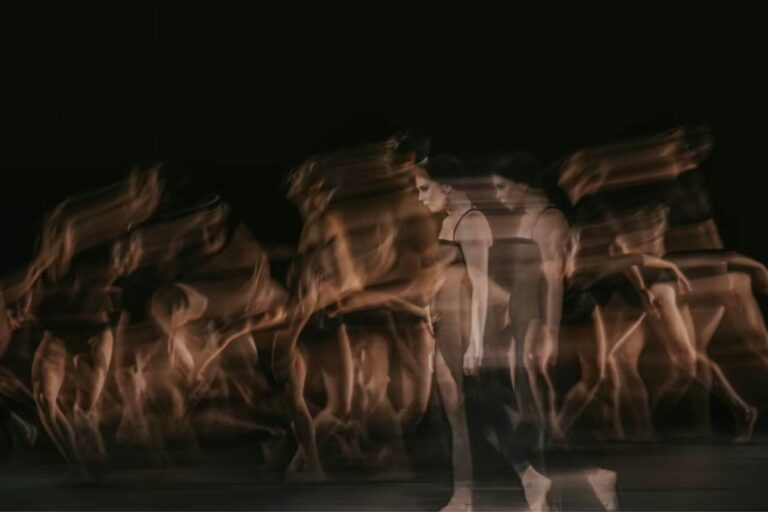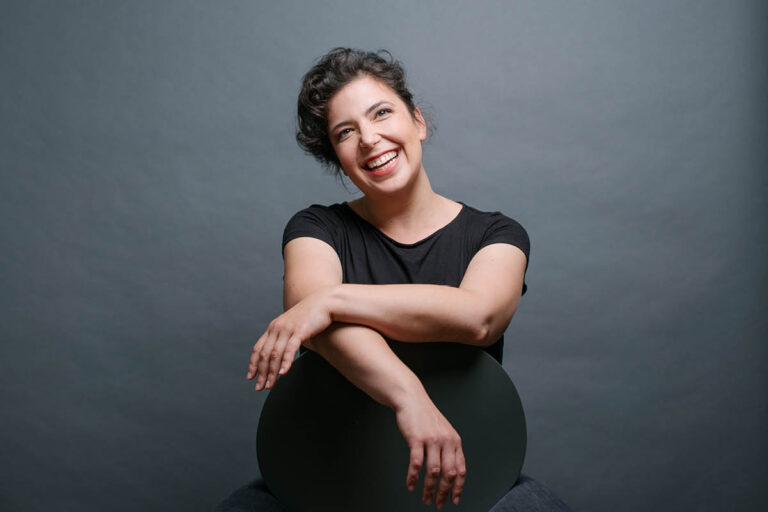The first thing Yo-Yo Ma does when we meet for our interview is express his deep concern and sympathy for those suffering – and the wildlife lost – as a result of the Australian fires, disturbing images of which are being broadcast around the world. “I know it’s a deep wound,” he says. “For all of us. But for you guys it’s unbelievable.”
 Yo-Yo Ma performing at the Cantonese Opera Museum in Guangzhou. Photo © YMCG 2020
Yo-Yo Ma performing at the Cantonese Opera Museum in Guangzhou. Photo © YMCG 2020
We’re speaking midway through the 2020 Youth Music Culture Guangdong in the Chinese city of Guangzhou, an event presented by the Guangdong Provincial Department of Culture and Tourism and organised jointly by the Guangzhou Symphony Orchestra and Xinghai Concert Hall, bringing together young musicians from all around the world. Ma is the event’s Artistic Director and a major drawcard for the participants, who have come to the city on the Pearl River in southern China from across the country as well as from the USA, Japan, Italy and Hungary – and even one musician from Australia.
The superstar cellist was in Australia last year, making his debut as part of his six-continent tour The Bach Project. “It was amazing,” he says, cradling a large, reusable cup full of coffee. “Incredible experiences.”
In addition to sold-out performances of all six of Johann Sebastian Bach’s Cello Suites in Sydney and Melbourne, Ma met and spoke with people in LGBT and Indigenous communities as part of the Days of Action that accompanied his tour. One of the most moving moments of his visit to Sydney was a performance with Ngiyampaa, Yuin, Bandjalang and Gumbangirr composer and violinist Eric Avery, of a lullaby sung by Avery’s great grandfather and his brothers.
Ma describes speaking to Avery over the phone ahead of the performance. “We talked a little bit and got to know each other,” he says, acknowledging that given he was only in the country for a few days “we have to accelerate the relationship process”.
“What a gem, he’s just such a sweetheart,” Ma says. “Loved working with him, loved what he is doing. He’s fabulous.”
In Sydney, Ma described music’s ability to “turn the other into us” and it’s a phrase that he returned to regularly during the nine-day event in China.
“Yo-Yo and I both had the same idea, that’s why we worked together to create this platform,” says Chinese maestro Long Yu, Artistic Director of the Guangzhou Symphony Orchestra. “I want young people to share their ideas, their understanding of culture.”
 Yo-Yo Ma and conductor Long Yu. Photo © YMCG 2020
Yo-Yo Ma and conductor Long Yu. Photo © YMCG 2020
Cultural exchange between students at YMCG – who vary in age, experience, cultural and linguistic background and profession – is at the heart of the program. “Music is a platform, but that doesn’t mean it’s only for music,” he says.
Yu hopes YMCG will be a way to bridge some of the distances that arise through cultural misunderstandings. “Yo-Yo and I both understand the importance of the young people of the world learning how to try to understand other parties,” he says, pointing out that chamber music is a useful platform for this process. “If you play orchestral or chamber music, you have to learn how to listen. If you don’t listen, you don’t know how to play. If you want to say something, try to listen first.”
 Yo-Yo Ma at a community concert. Photo © YMCG 2020
Yo-Yo Ma at a community concert. Photo © YMCG 2020
This year is YMCG’s fourth iteration, and in keeping with Ma’s recent touring, the focus is Bach. Participants give performances of the Orchestral Suites in a combined ensemble, the Brandenburg Concertos in smaller groups, as well as performing in ‘Silkroad’ bands – based on ideas from Ma’s multicultural Silkroad collaborations – for which the participants create new, often improvisatory, works based on baroque dance forms, in a contemporary take on Bach’s own creative processes. Living, eating and rehearsing together, the musicians perform formally in the Xinghai Concert Hall and in pop-up concerts in the community, at locations ranging from a local school to Guangzhou’s Cantonese Opera Museum and even high up on the viewing platform of the Canton Tower. But with three watchwords – Trust, Truth and Service – it is this sense of connection that Ma seeks to spotlight, with seminars both on music itself and how music can be used in service to the community.
“I think that has been a central life-calling of Yo-Yo’s,” says Hsin-Yun Huang, a New York-based violist who teaches as part of the YMCG faculty. “It’s the building of Silkroad, it’s the feeling of dialogue – it’s all tapping into humanity. The bigger message is really how can we be better citizens.”
A child prodigy, Ma was born in Paris to Chinese parents, spent his school years in New York, and went on to study at The Juilliard School, before eventually graduating from Harvard with a degree in anthropology in 1976. His discography includes over 100 albums, for which he has won fistfuls of Grammys. He has picked up countless awards including the Avery Fisher Prize, the Presidential Medal of Freedom (he’s played for eight US presidents) and the Polar Music Prize. He formed Silkroad in 1998 and in 2006 was named a United Nations Messenger of Peace.
Yet despite being the most famous classical musician in the world, he comes across as incredibly warm, genuine – at times sage-like – and gently self-effacing. “One thing that I’ve learnt as a 64-year-old, is that I need a lot of help,” he tells the YMCG participants on the first day to much laughter. “And the reason I need help is that nobody can do everything alone, and I think that together we can actually be very powerful.”
 Yo-Yo Ma performing at a community concert. Photo © YMCG 2020
Yo-Yo Ma performing at a community concert. Photo © YMCG 2020
“You’re trying to seek to get as close to what is true as possible, to create as much trust as you can, and build the bridges of trust as opposed to the walls of fear,” Ma tells me, leaning in. “I think those are for me the fundamental values of anything that we create in our communities, our countries, to our planet.”
Across the nine days of YMCG, you can’t miss Ma’s presence, whether he’s listening attentively in a rehearsal, playing in the back row of the cellos in a performance, giving a pep-talk before a concert – inspiring and animated, more sports coach than musician – or making funny faces at children as he plays Bach, his expressions corresponding to dips or peaks in his phrases. What comes across overwhelmingly is how engaged he is – he appears to bring everything of himself to every single interaction.
 Australian YMCG participant Henry Liang. Photo © YMCG 2020
Australian YMCG participant Henry Liang. Photo © YMCG 2020
“You would just run into him in the corridors,” says Henry Liang, a flautist who plays in the Australian Navy Band. “He made everyone feel like he had time for them from the moment he walked in the room.”
At the orientation session on the first day, Ma made sure to greet each one of the 71 participants. “There were about 50 cameras around him, and he took time to go and shake everyone’s hand,” says Liang, who was surprised that when they spoke Ma already knew who he was, where he was from, and what he did for a living. “He genuinely just made everyone feel like they’re valued.”
So what’s behind this level of personal attention? “I’m not a professional teacher,” Ma tells me. “All I can do is share from my experiences. You learn from good modelling, and you learn from bad modelling.”
Bad behaviour can be particularly instructive. “You just resolve that you will never do that to somebody else, that you will never pass on the toxins,” he says. “You can inflict permanent scars on people and that’s, I think, inexcusable. Especially if you’re in a powerful role, like being an authority figure or teacher.”
The other reason is that Ma believes learning happens at an individual level. “Because we’re all different,” he says. “Therefore if you’re really going to get a deep insight into something, and if all of culture is about connecting, then people have to make their individual connections so that you are in a stream that goes into a tributary that goes into a river that flows into the ocean of knowledge.”
 A participant with violist Hsin-Yun Huang. Photo © YMCG 2020
A participant with violist Hsin-Yun Huang. Photo © YMCG 2020
Cultural learning plays out constantly through individual connections at YMCG, from students translating between Chinese and English in rehearsals, to sharing meals and stories. “We went out to hot pot after rehearsal one night,” says Liang, who lived in Guangzhou until he moved to Sydney at age 11 and was therefore one of several multi-lingual participants able to translate between the different language groups. “The Chinese students would be telling the European ones what the different types of foods are and how culturally this is like having a big family sitting around and we’re all sharing chopsticks,” he says, the non-Chinese participants reciprocating in turn.
Not all the participants pursue a life solely devoted to music, with careers ranging from visual artist to architect. “My roommate was working on a sonic womb for premature babies,” Liang says. “It just gave me such a sense of how much bigger music and art is.”
Each participant at YMCG is also given some one-on-one time with Ma, in short sessions scheduled across the event – a chance to meet with the cellist, ask questions, or just hang out and chat. “Everyone seems to have asked such different questions,” Liang says. “Some focused on performance anxiety, some on future paths in music, some on technique. But from what I heard he gave really good answers to satisfy everyone who asked.”
“I enjoyed the fact that he didn’t use any musical examples to talk about music,” he says of his own session. “Like the idea of music was so much bigger than music itself.”
 Yo-Yo Ma in the cello section at the closing concert of YMCG 2020. Photo © YMCG 2020
Yo-Yo Ma in the cello section at the closing concert of YMCG 2020. Photo © YMCG 2020
Ma’s role becomes almost that of life coach – his preoccupations often begin with music but extend out into all aspects of life. “The questions that people have had are sort of like, what direction should I have in life? What’s the right thing to do?” Ma reveals. “I think for a young person it’s sorting out between the social messages you received going up, parental messages, or from adults, from family, from teachers, and from peer group, especially now with social media.”
“Some kids know what they want to do by the time they’re eight, or five. They’ve found their life mission,” he says. “But for others it takes a while – and maybe it’s not about a life mission, maybe it’s about how to live a life that you can just feel that you’re one person. That you’re a productive person, or that you’re a helping person, or your identity comes from being expressive.”
For Ma, it’s important to align your aspirations with what is possible in such a way that you don’t feel like you have to do everything all at once. “To give yourself a sense of time,” he says. “‘If I do these things that will lead me in that direction.’ I think that’s, in a way, the art of living – as well as the art of expression in music.”
Ma hopes to establish with each participant some kind of long-term goal. “Some ideal aspirational thing that’s really worthwhile going toward,” he says. “We want to give people the sense that they are the architects of their own life.”
However, “you actually want to be able to be successful now, in terms of knowing what your next steps are,” he says. “I’ve been meeting with every single person and for some people we just set a goal, like, today you’re going to talk to that person.”
“A lot of people are shy, and or afraid of things, but they can make one decision that actually takes them out of it,” he says. “You can say, every day I can take one action. And if you write down what those actions are, after a month, you can look at what you’ve actually accomplished.”
It’s essentially self-management, he explains. “If you’re going to be in charge of your life, here’s one way to manage your learning.”
These goals can be modest: Ma’s own aim is to show up on time for the bus every day. “Showing up late is a disrespect of other people’s time,” he says, confessing he hasn’t always been punctual in previous years.
Ma sees this step-by-step approach as a model that can be used in music but also to tackle bigger problems, like climate change. “This would be a question for everybody to figure out within their world and environment: what’s one thing they can do that can be helpful?”
“The planetary issues obviously can’t be solved by any one type of stakeholder, whether it’s a huge country, or a huge company, or a huge sector,” he says. “The financial world can do so much, the political world can do so much, the cultural world can do so much – but if you put all three together…”
He gestures to his reusable coffee cup as an example. “That’s something that we can do. It starts from single tiny actions, but practised as often as possible, preferably on a daily basis – and I feel now badly when I’m throwing away something that is a pollutant.”
While slogans like “Trust, Truth and Service” might, at worst, conjure up images of dubious religious organisations or pyramid schemes, Ma’s genuine passion and hope for humanity is irresistible to everyone around him. “He really lives what he preaches,” Liang says. “It’s amazing.”
“I’m so grateful for a visionary like Yo-Yo to have dreamt up a community like this, and a creative space that allows such freedom,” Huang says. “He’s a master at putting people at ease, and saying, OK, now you go, you be yourself. What is the best that you can be? And each person I know has come to that place where it’s the best of themselves.”
Music, for Ma, is ultimately a way of bringing people together and energising them. “I don’t pretend for a second that music can solve certain problems, but it should be part of the answer,” he says. “Convening people and then providing a safe space for discussion.”
“I think what I’m most proud of is if I can bring different sorts of people together, who don’t usually come together, to address an issue – whether it’s education or any of the 17 UN Sustainable Development Goals, whether it’s gender equity, whether it’s poverty or climate change or oceans – you actually find different answers. A different direction, a new direction, and complex answers to complex problems.”
“Music can provide a sense of community – the content, communication and reception is part of the magic circle that creates exceptional moments that make us feel ‘wow, I’m part of something bigger than myself.’”
“I say to people, when you’re performing, you make sure that the listener is the most important person in the room,” he says. “The music flows through you and gets to somebody else, they receive it as a gift, and then they take it on, and either they give it to somebody else or they do something with it – that becomes a cultural act.”
Otherwise the act is purely transactional, he explains, buying a ticket in exchange for an hour and a half of music. “That’s fine too, but that’s not what I call culture. Culture is when something living is passed on and there’s a further connection. I think that kind of act is useful in the larger world – let’s repeat that over and over again.”
Angus McPherson travelled to China as a guest of the Guangzhou Symphony Orchestra and 8VA Music Consultancy











Comments
Log in to start the conversation.